Question: How do Vietnamese people view the Chinese?
Answer: I think that from my perspective, most of the Vietnamese have a positive view forward the Chinese. I said about the Chinese people, not the imperial ambition of the Chinese states. Of course, Each of the Vietnamese will have a different view about the Chinese people based on their knowledge, experience, and position.
Firstly , If the Vietnamese speak as their personal position, they have no reason or little reason to hate the Chinese people or the Chinese culture. It is partly why:
The Vietnamese have not discriminated against the Chinese-Vietnamese people.
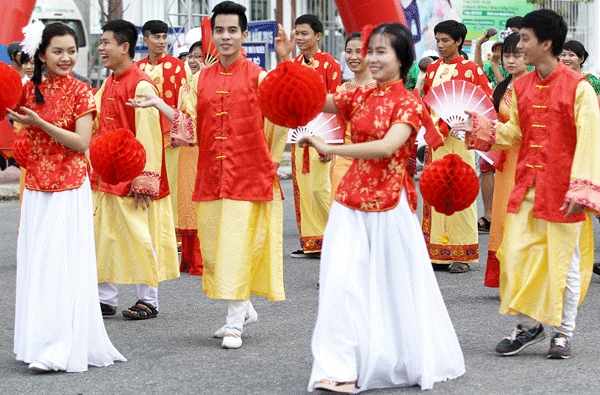
(Hoa ethnic in Vietnam)
The Vietnamese admire the Chinese culture and the Chinese people. Of course, in the past, they also learned and absorbed much the Chinese cultural values to enrich the Vietnamese culture. Today, the Chinese culture is not the cultural model for the Vietnamese, but the Vietnamese still respect much to the Chinese culture.
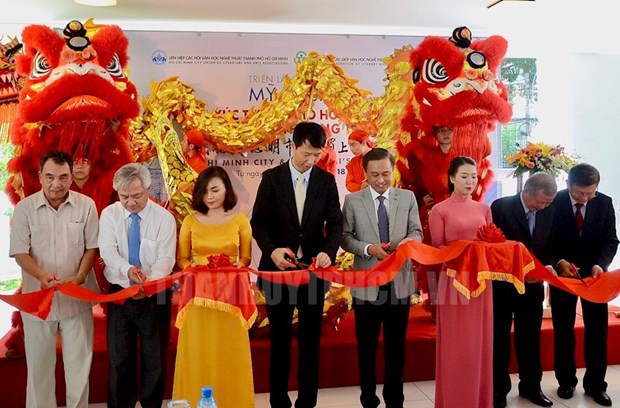
(Paintings by Vietnamese, Chinese artists showcased in HCM City )
In general, the Chinese people are good at doing business, hard-working, and very close to the Vietnamese in most of everything from history, culture to philosophy, way of life..etc. I think that it is great for the Vietnamese to make friends with China.
Secondly , If the Vietnamese speak out as their national interests, they shall view China (I mean the Chinese states) as an aggressive and imperial country. Each of the Chinese Empires and regimes in the entire Chinese history has always invaded or sent their troops to occupy Vietnam at least once time. Let’s check around 1000 recent years:
Link: List of wars involving Vietnam - Wikipedia
In 938, the Chinese Southern Han kingdom invaded Vietnam
In 981, the Chinese Song Empire invaded Vietnam
In 1077–1078, the Chinese Song Empire also invaded Vietnam
In 1258, 1285, 1288, the Yuan Empire invaded Vietnam (If you regarded the Yuan Empire as Chinese Dynasty)
In 1407, the Chinese Ming Empire invaded Vietnam and even enslaved the Vietnamese for 20 years.
In 1788, the Chinese Qing Empire invaded Vietnam.
In 1945, the Chinese ROC (Taiwan) sent their troops to Vietnam to disarm the Japanese troops after ending the WW2 but has still occupied the Vietnamese islands - Itu Aba island.
In 1979, the Chinese CCP Empire invaded Vietnam during the short-blood war and still raided into the Vietnamese territories from 1979–1991.
Now: China and Taiwan still occupy many of the Vietnamese islands on the South China Sea and also threaten the maritime activities in the Vietnamese EEZ in accordance with the UNCLOS 1982.
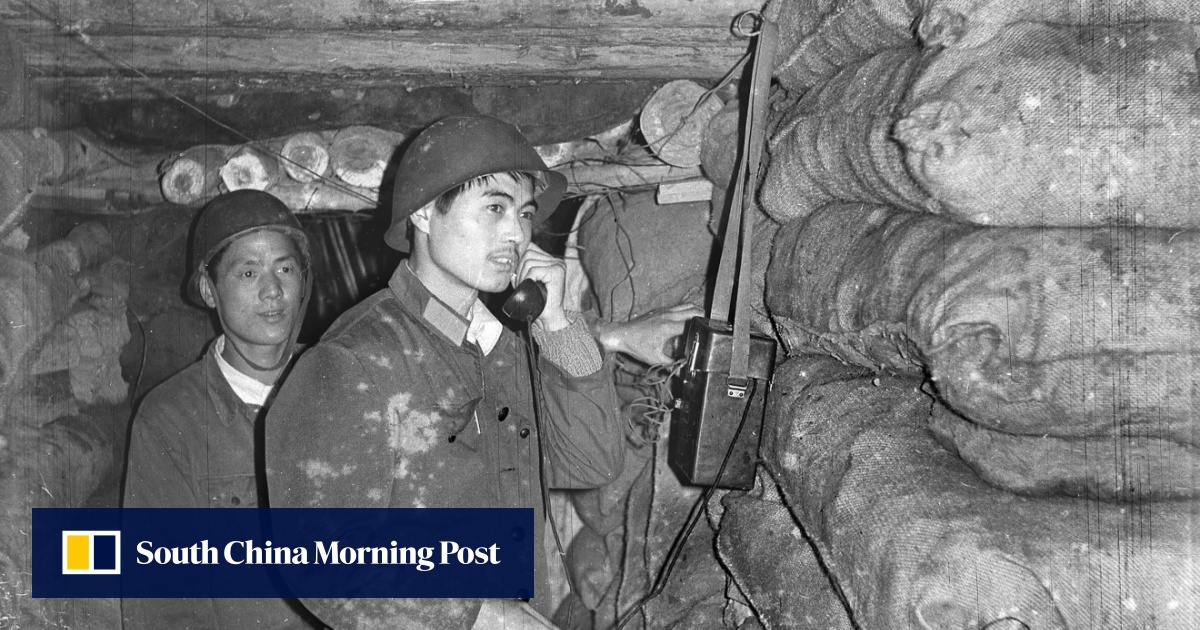
What do you think that How the Vietnamese should view China? From What I know that the Vietnamese only hope that China should let them alone, do not claim their territories and their waters in accordance with the UNCLOS 1982, and both countries should be friends of each other. However, I guess that the Chinese states will never abandon their greed with Vietnam which seemingly inherited from the Chinese ancestors.
In conclusion : the Vietnamese and the Chinese should be friends and all of the disputes between both countries also should be resolved through negotiation in bilateral and multilateral forums based on the International laws and general rules of our world. If not, the international court could be a good choice for both. However, I guess the Chinese government will not want to resolve the dispute with Vietnam through international laws because you know why!
Reading this article: Ask The Vietnamese About War, And They Think China, Not The U.S .
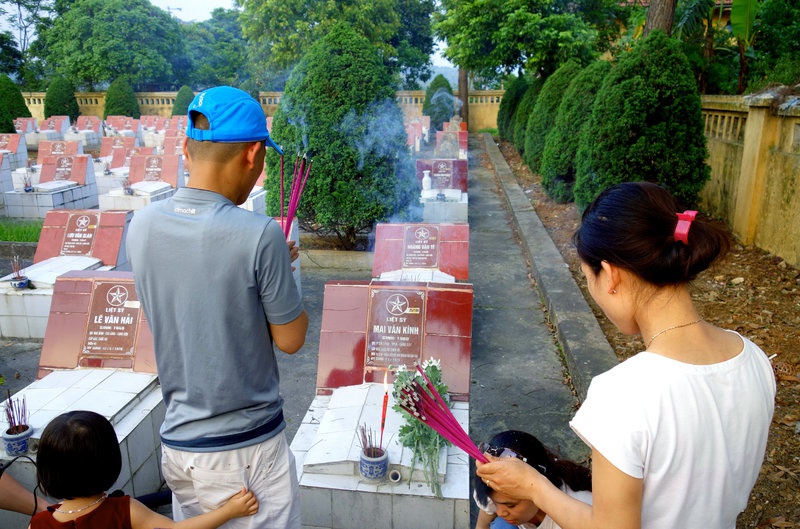
(Pham Thi Ky (right) and her family pray at the grave of her brother-in-law, who was killed 36 years ago in the 1979 border war with China. Every year, the family goes to the cemetery on the anniversary of his death. Vietnam and China have been adversaries for centuries and the friction continues to this day)
In one of the many war cemeteries in Lang Son, a city in northern Vietnam, Pham Thi Ky and her family light incense and offer prayers for her brother-in-law, who died 36 years ago in Vietnam's brief but bloody border war with China.
That 1979 war left more than 50,000 dead. There are other graves here, too. They fought and died against the French occupiers, then the Americans. But relative to China, those were brief battles.
No country weighs on Vietnam like China, and it has been that way for centuries. Has the conflict with China ever really ended, I ask Pham Thi Ky as she lights another candle.
"No," she says. Her daughter agrees. Her sister is even more emphatic. "It will never end. With the Chinese, how can it ever end?"
Vietnam's 2,000-year history with its northern neighbor is complex. There have been countless conflicts as well as shared culture. The Temple of Literature in Hanoi is a good example. It was built by the Vietnamese King Ly Thánh Tông in 1070 to honor the Chinese philosopher Confucius. The teachings on the walls are written in Chinese characters. China is also Vietnam's largest trading partner.
The two countries share a communist ideology shaped in part by their shared history, an ideology largely abandoned by the rest of the world. That helps explain why the 1979 border war is something neither government likes to talk about. But Nguyen Duy Thuc, a veteran of that war, is happy to.
"On the morning of the attack, February 17th
, we were sleeping when the Chinese artillery started, then we all ran to our posts," he says. "Some were dressed, others didn't even have time to put their pants on, they just ran to their posts to fight."
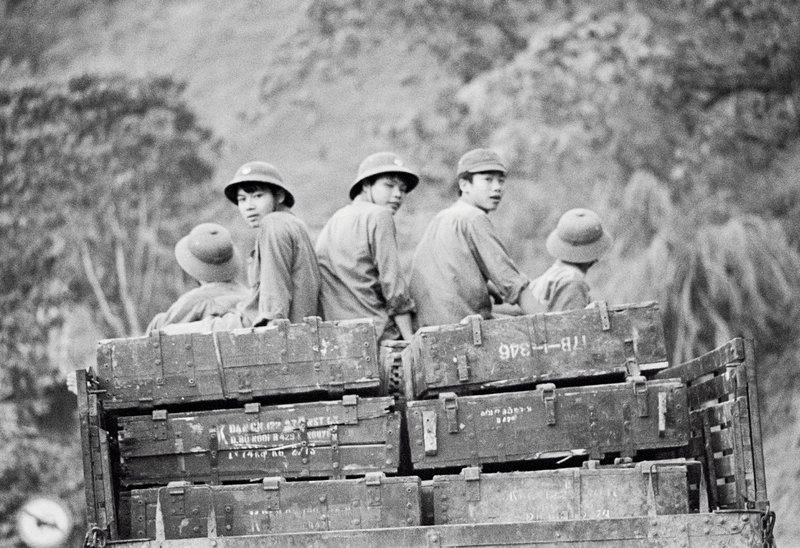
Vietnamese forces travel toward the country's northern border during a brief, bloody war with China in 1979.
At least 200,000 Chinese troops poured into northern Vietnam all along the border. China was aiming to punish Vietnam for its invasion of Cambodia the month before to oust the Chinese-backed Khmer Rouge. There were so many Chinese attacking, Nguyen Duy Thuc remembers, that the soldiers in his bunker "fired our AK-47s until the muzzles turned red and they couldn't fire anymore."
But the Chinese kept coming; eventually, his bunker was overrun. The Chinese, he says, pumped gas into the ventilation system. There were 800 people, including soldiers, women, and children, who fled the fighting in his bunker, Nguyen says.
Only he and two others managed to escape. After nearly a month, the Chinese withdrew, though border clashes continued for the next decade. And Nguyen Duy Thuc hasn't forgotten. If he catches his wife trying to watch a Chinese movie, he turns it off.
Memories of that war, and the many other bouts of invasion, occupation, and retaliation throughout history, color Vietnam's relationship with China.
That's especially true now, with the two countries at odds over what Vietnam views as Chinese expansionism in the South China Sea. When China parked an oil rig in contested waters last year, Vietnam upped its official anti-China rhetoric.
And anti-China rioting left at least a dozen dead, including four Taiwanese mistaken for Chinese. As tension grew, and Chinese and Vietnamese boats played a dangerous game of chicken near the rig, some in the border town of Lang Son grew worried. They feared a repeat of what happened in 1979.
"Last year, we were very frightened. We started stockpiling rice and food. I was very worried that there would be war," says Pham Thi Ky, the woman at the cemetery.
Back in 1979, she says she was forced to flee with nothing but the clothes on her back, so this time she wanted to be prepared. She even went to the bank to withdraw a large sum of money, just in case. But the bank wouldn't give it to her, apparently fearing a run.
Vietnam isn't the only one worried.
The Obama administration's "pivot toward Asia" is prompted, in part, by the idea of trying to contain China's expansionism, which has its Southeast Asian neighbors and Japan worried.
In the South China Sea, China continues to build on several disputed islands and reefs. In April, satellite photos revealed China was constructing a 2-mile-long, military-grade runway on Fiery Cross Reef, prompting howls of protest from the Philippines and Vietnam, both of which claim the island as their own.
"We think this can be solved diplomatically, but just because the Philippines or Vietnam are not as large as China doesn't mean that they can just be elbowed aside," President Obama said.
Duong Trung Quoc, a member of Vietnam's National Assembly and editor of the magazine Past & Present, says, "I think China is not only Vietnam's problem, but the world's problem right now."
Duong says he admires how China appears to be the only civilization in history to have forced its way back onto the world stage after an interregnum.
"It didn't happen with Greece or India," he says. "But China has a chance."
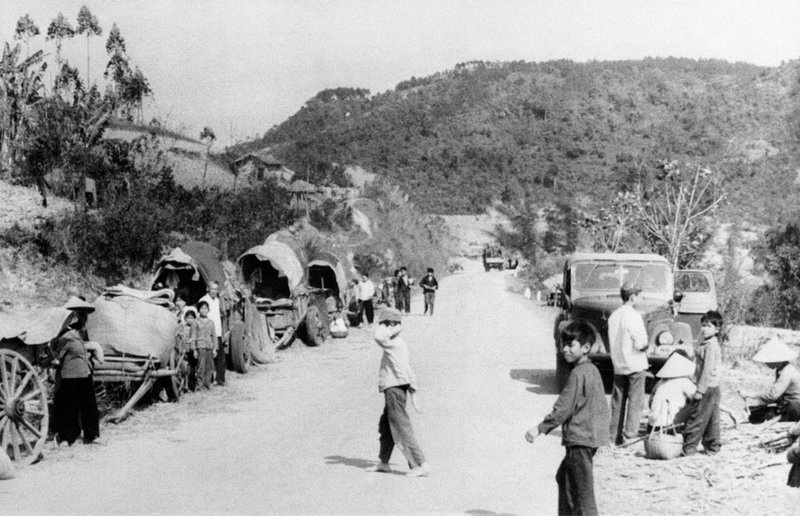
Vietnamese in the northern province of Lang Son seek refuge after Chinese forces crossed the border and entered Vietnam in February 1979.
And that's a problem, he contends, because China still thinks the way it used to back when it was on top.
"China thinks it is at the center. The conquerer. It wants to turn everybody else into its subordinates," he says. Don't believe China, Duong says when it appears to be playing nice. It's a trap. The Vietnamese, he says, should know.
"After the war, the Vietnamese and the Americans could reconcile. Vietnam and France can reconcile. Veterans from both sides can sit down together and talk. Vietnamese and Chinese veterans hardly ever sit down together," he says.
Why is this?
"The Vietnamese have had too much experience with the Chinese. The Vietnamese can't trust the Chinese. We've had too m

